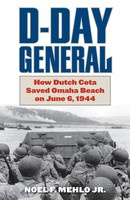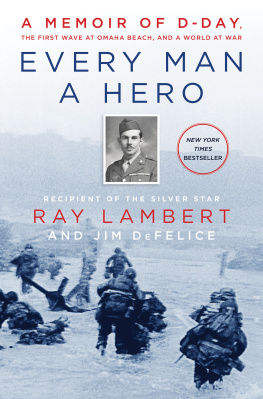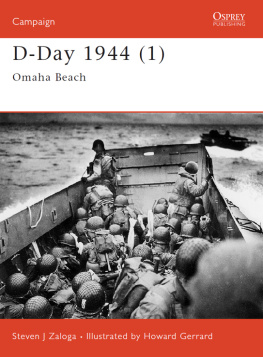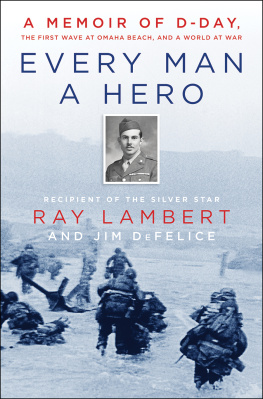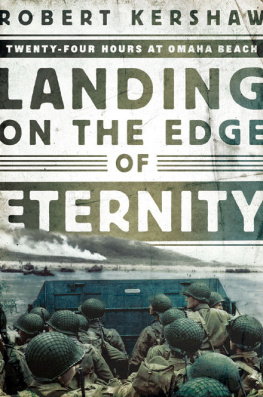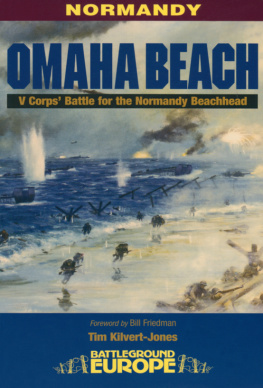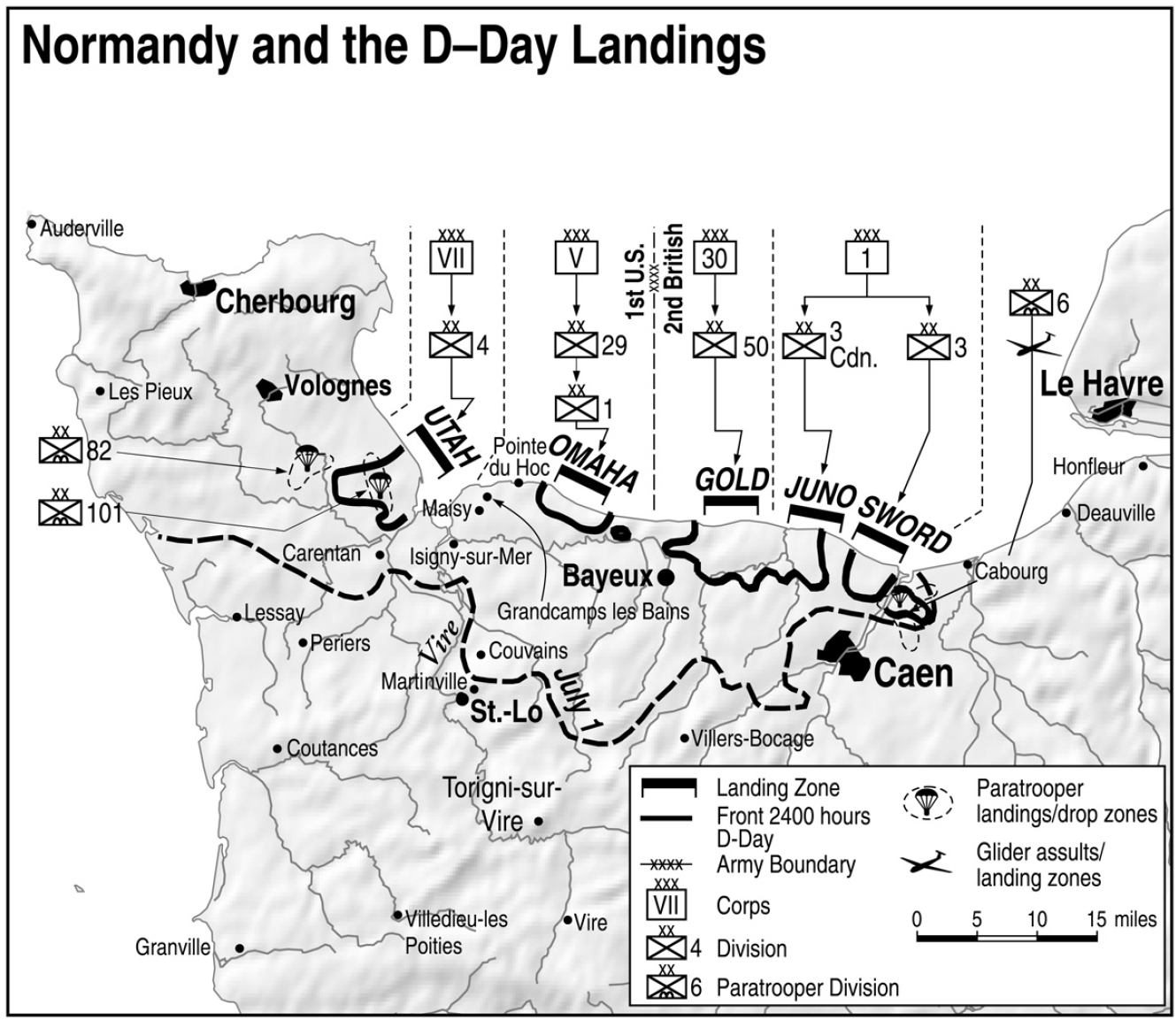

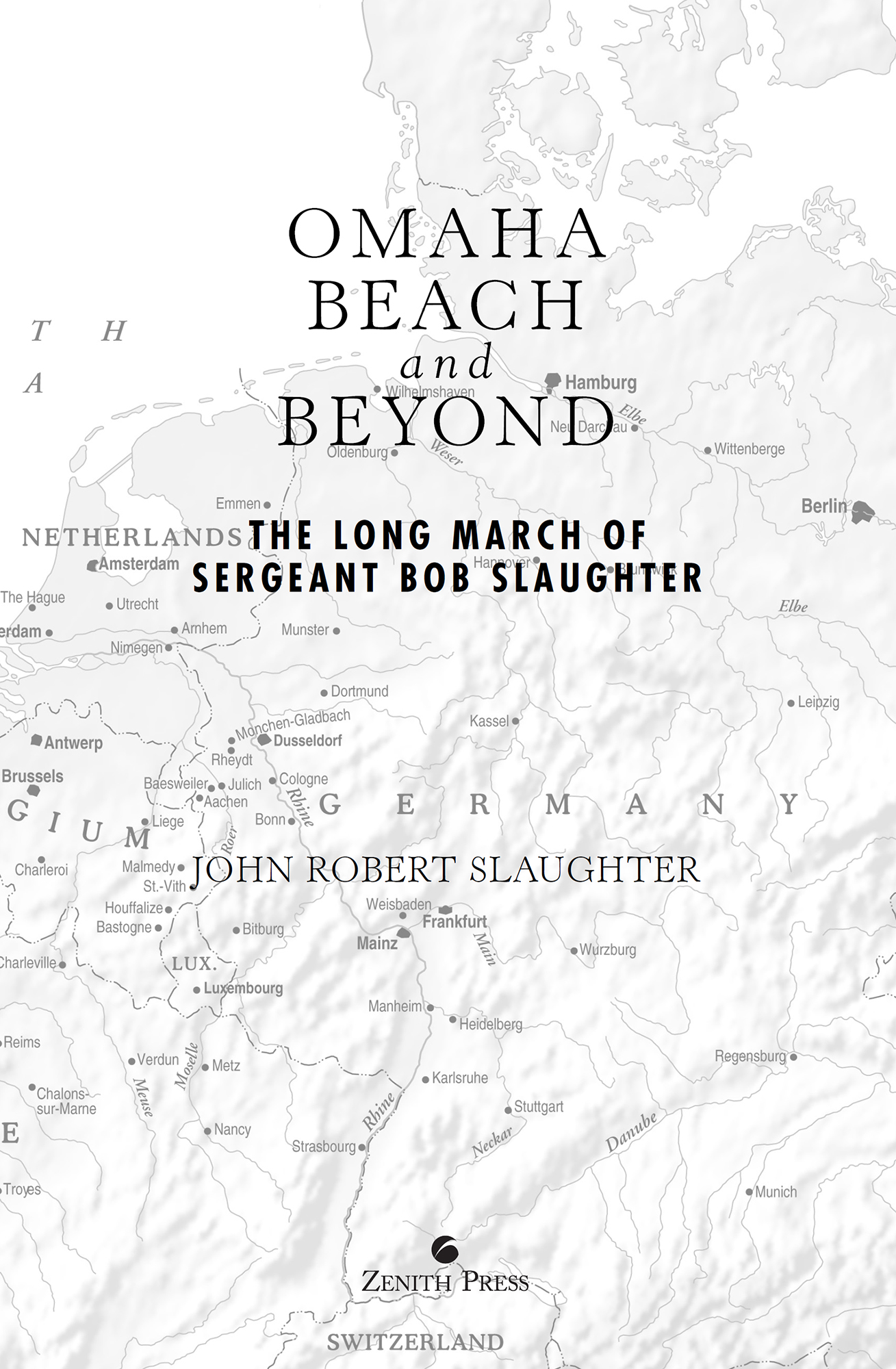
CONTENTS
FOREWORD
It was a beautiful fall afternoon when I pulled up in my rental car in the driveway of Bob Slaughters home in the gentle, rolling hills outside Roanoke, Virginia. I was emotionally drained. I had just spent several days talking to the relatives of nineteen young menthe so-called Bedford Boyswho had died in a matter of minutes on Omaha Beach.
That very morning, I had managed with great difficulty to coax a few painful memories from the only officer still living from Company A, 116th Infantry Regiment, 29th Divisionthe first unit of Americans to hit the most lethal beach on D-Day and to which the Bedford Boys had belonged. Perhaps Mr. Slaughter, a fellow survivor of Bloody Omaha would be just as reluctant to talk, just as cautious as others in casting his mind back to days that Virginia communities such as Lynchburg, Bedford, and Roanoke struggled for many years to try to forget.
I had heard so many overwhelming stories of grief and loss, from widows who still cry when they remember, from brothers and sisters, from a daughter who never did get to meet her father. Frankly, I was depressed. But then Bob greeted me at his front door with a firm handshake and a warm welcome, and a smile finally returned to my face. For a couple of hours I sat transfixed in his study as he told me the amazing tale of how he also landed on Omaha Beach on June 6, 1944, and managed not only to get off that killing ground without injury but also, by some miracle, to fight on across Normandy and then France until the fall of the Third Reich.
Bob Slaughter told his story with clarity, humor, and sometimes brutal honesty. I knew from the first few minutes of our conversation that I had found a very important source, a man with a keen and accurate memory who had experienced the same upbringing, induction to the army, and buildup to D-Day as the young men from Bedford whose story I was trying to tell. I discovered that he was just fifteen when he joined the National Guard. I was tall for my agesix foot two, he told me. We got a dollar every drill and went to Virginia Beach in the summer. He grew another three inches by D-Day.
I will not spoil Bobs riveting narrative by revealing what happened to him on D-Day. Suffice it to say that when he told me I was shocked to the core by the random nature of the slaughterlife and death were separated by a bullet going a fraction of an inch one way or the other. Many of Bobs friends from Roanoke were killed before his eyes. It was almost impossible to stomach, and it was even harder to then find the strength, the guts, to get the job done and get off that beach. But all six foot five inches of Bob Slaughter managed it.
By the end of June 1944, Bob Slaughter had fought through hedgerows and ruined villages toward St.-L. Very few of the men he had landed with on D-Day were still alive. All knew that they would either be killed or wounded. There was no other fate. Your best hope was for a million-dollar wound, nice clean sheets, and a pretty nurse, Bob told me. You didnt want to lie out there and bleed for a long time. Id see guys on a stretcher, and theyd been shot through the leg and they would be smiling. Ill see ya buddy! they shouted. You didnt want to get it in the groin or stomach but the legs, arms, shoulders, hands. That would have been wonderful. Fingers didnt count.
Thankfully, every day Bob Slaughter spent in combat counted. Indeed, every yard he advanced counted a great deal. He and his ilkliberators, not conquerorsearned America an inestimable prestige in the eyes of an eternally grateful continent. Visit hamlets where Slaughter and his brothers fought, as I did on the sixtieth anniversary of D-Day, and you will find that today people still remember the heart-wrenching sacrifice of young American lives. Some of the locals saw the cost of freedom with their own eyes: the twisted corpses dotted along hedgerows, the lines of young Virginians, limbless, disfigured, waiting in some shell-holed church to be evacuated.
I dont care if this sounds shamelessly sentimental. It is the truth: Bob Slaughter and his kind walk like giants among us today. They are not long for this world. So while they are still here to shake our hands, we should read what they write and listen to what they say. They were there. They can tell us what it was like to fight during Americas finest hourJune 6, 1944. They can tell us that only for the greatest of causes should any young American lay down his life.
I owe a two-fold debt to Bob Slaughter. As a Brit, I grew up in a Europe that he helped liberate. I have enjoyed what so many of his childhood friends never lived to seeover sixty years of peace and prosperity on a continent that had been scarred by war since the beginning of history. I am also indebted to Bob because I benefited enormously in my research from a carefully typed manuscript that he loaned to methe origins of the book you are reading now. The manuscript has changed a great deal since then. But the story is essentially the same: Bob Slaughters memoir Omaha Beach and Beyond is a powerful and moving tale of a teenage warrior who came of age on D-Day. It is the story of a man who could not forget, who walked the sands on Omaha with President Clinton at his side in 1994, on the fiftieth anniversary of the invasion, and who more than any other is responsible for the building of Americas finest war memorialthe National D-Day Memorial in Bedford, Virginia.
If you ever happen to be in Bob Slaughters neighborhood, take a detour and visit the memorial. It lies in the lee of the Blue Ridge Mountains. It is a beautiful place, a fitting tribute to the men who fought and died alongside Bob Slaughter. And if you ever happen to find yourself in Normandy, the setting for so much of this cracking good story, you must pay a visit to the American cemetery at Colleville sur Mer. Bob knows the place well. Several of his good friends are buried there in graves overlooking the beach, beside 9,386 other American dead from the battle for Normandy. In the near future, I will take my young son to the graveyard to make him proud to be an American. I will talk to him about men like Bob. I will tell him it was my honor to spend time with them. I will also take him to a chapel at the heart of the rows of dead, a chapel Mr. Slaughter also knows only too well. On a wall of that chapel the following words are inscribed for all to see: Think not only upon their passing. Remember the glory of their spirit.
Alex Kershaw
INTRODUCTION
Historians, scribes, and screenwriters have long featured World War II as the global event of the twentieth century, and D-Day at Normandy on June 6, 1944, was indisputably one of the greatest battles of the war. Yet by 1944, the German army was severely crippled and stretched to the limit. Through 1944 and 1945, the once-potent Luftwaffe was almost nonexistent.
Why then, did the twelve-nation Allies have so much trouble bringing the war-weary Nazi empire under control? The cost of the war had reached into the billions and billions of dollars, and had caused the loss of many millions of human lives. Why then, was this war so difficult for so long?
This book fails to answer any of that.
My purpose instead is to tell the untold story of a few young citizen soldiers, including myself, who were caught up in a world war that turned out to be so utterly brutal that it still remains difficult to write about it even now, over sixty years later. Much of this account tells the story of the melding of national guardsmen and drafted soldiers into a fighting unit that defeated a well-disciplined, well-equipped, and well-led professional Axis army.
Next page

